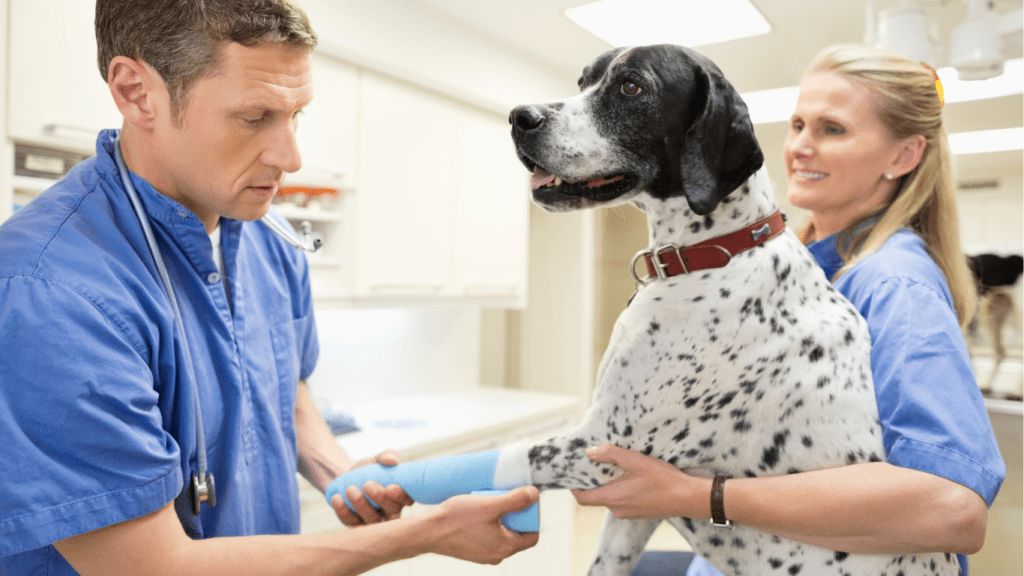Understanding Your Pet’s Needs
Different pets have unique health requirements. Knowing these needs helps in choosing the right veterinarian.
Different Types of Veterinarians
Veterinarians often specialize in different fields. General practitioners handle routine check-ups, vaccinations, and common illnesses. For complex issues, specialists like dermatologists, cardiologists, and surgeons offer advanced care. Exotic pet veterinarians focus on animals such as reptiles, birds, and small mammals (e.g., hamsters, ferrets). Equine veterinarians specialize in horses. Identifying the type of care your pet requires can guide you to the right veterinary practice.
Frequency of Vet Visits
Regular vet visits are essential for maintaining your pet’s health. Puppies and kittens typically require more frequent visits for vaccinations and growth monitoring in their first year. Adult pets usually need annual check-ups or bi-annual visits if they have chronic conditions. Senior pets benefit from more frequent visits, typically every six months, to monitor age-related health issues. Ensure your veterinarian recommends a schedule tailored to your pet’s age, breed, and health status.
Researching Veterinarians
Choosing the right veterinarian involves thorough research. It’s essential to evaluate various aspects to ensure your pet receives the best care.
Online Reviews and Testimonials
Online reviews provide valuable insights into a veterinarian’s reputation. Trustworthy sites like Yelp and Google Reviews display feedback from other pet owners. Look for consistent positive or negative trends and specific compliments or complaints about the vet’s service. Testimonials on the clinic’s website often highlight satisfied clients; while they might be curated, they can still offer useful context.
Veterinary Credentials and Experience
Verifying a veterinarian’s credentials ensures they meet professional standards. Check if the vet is accredited by the American Veterinary Medical Association (AVMA). Evaluate their experience, especially related to your pet’s species or specific health needs. For instance, a specialist in dermatology offers expertise beyond that of a general practitioner.
Clinic Location and Accessibility
Location is crucial for convenience and emergency situations. Select a clinic within a reasonable distance from your home. Assess accessibility factors, such as parking availability, public transportation options, and entry for pets with mobility issues. Ensure the clinic’s operating hours align with your schedule to facilitate regular visits.
Incorporating these factors into your research helps ensure you’re making an informed decision for your pet’s healthcare.
Visiting Potential Veterinarians
Visiting clinics provides an opportunity to evaluate them firsthand. It ensures the environment meets your pet’s needs and the staff aligns with your expectations.
Assessing the Clinic Environment
Inspect the cleanliness and organization of the clinic. A clean, well-organized clinic indicates a professional approach to patient care.
Observe the waiting area and exam rooms. They should be spacious, calm, and free from unpleasant odors to reduce your pet’s stress.
Look at the equipment. Modern, well-maintained equipment indicates the ability to provide comprehensive care for your pet.
Notice any signage about emergency services. Accessible emergency care information demonstrates preparedness for urgent situations.
Meeting the Veterinarian and Staff
- Talk to the veterinarian about their philosophy of care. An open discussion on treatment approaches and preventive care shows their expertise and concern for your pet’s well-being.
- Evaluate the communication style. Clear, compassionate communication from the veterinarian and staff fosters trust and a positive relationship.
- Check the support staff’s demeanor. Friendly, knowledgeable staff can ease stress and improve the overall experience for both you and your pet.
- Inquire about ongoing education. Veterinarians who participate in continuous learning stay updated on best practices and emerging treatments.
Evaluating Veterinary Services

Assessing veterinary services is vital to ensure your pet receives the best care. Focus on the provided services to decide if a clinic meets your pet’s needs.
Range of Services Provided
Veterinary clinics offer various services, from routine check-ups to specialized treatments. Ensure the chosen clinic provides vaccinations, dental care, surgeries, and diagnostic tools. General services should include wellness exams, preventive care, and nutritional counseling. Specialized services might involve orthopedic surgery, dermatology, or behavioral consultations. The clinic should cater to your pet’s specific needs, whether preventative care, emergency procedures, or advanced diagnostics.
Availability of Emergency Care
Check if the clinic offers emergency care services for after-hours needs. A reliable veterinary service should provide 24/7 emergency care or have provisions with nearby emergency animal hospitals. Not every clinic can handle emergencies, so confirm their capability or affiliations with other facilities for urgent cases. Emergency care availability can significantly impact your pet’s health in critical situations.
Cost of Services
Evaluate the cost of services to ensure they fit your budget without compromising quality. Compare pricing for standard services like:
- vaccinations
- spaying
- neutering
Services can vary widely in price, so consider clinics that offer transparent pricing and payment plans. Discuss potential extra costs for surgeries or long-term treatments. Understanding the financial aspect can help avoid unexpected expenses while maintaining your pet’s health.
Making the Final Decision
Choosing the right veterinarian involves more than just qualifications and services. I focus on ensuring that the final choice prioritizes my pet’s comfort and considers long-term implications.
Prioritizing Your Pet’s Comfort
I observe how my pet reacts during clinic visits. If my pet appears stressed or uncomfortable, I consider alternative options. Friendly staff, a calm environment, and gentle handling techniques contribute significantly to my pet’s comfort. I also look for clinics that offer separate waiting areas for dogs and cats to minimize stress.
Long-term Considerations
I consider the longevity and continuity of care. Establishing a long-term relationship with a veterinarian familiar with my pet’s medical history ensures consistent care. I also assess the veterinarian’s policies on follow-up visits, referrals to specialists, and if they keep updated records of my pet’s health.



 Lead Pet Behavior Specialist
Brian Camacho is an expert in pet behavior and training at Pet Paw Shack. With a deep understanding of animal psychology, he specializes in helping pets and their owners build strong, healthy relationships through positive reinforcement techniques. Brian’s innovative approach to training focuses on making behavior modification a fun and rewarding experience for both pets and their families.
Lead Pet Behavior Specialist
Brian Camacho is an expert in pet behavior and training at Pet Paw Shack. With a deep understanding of animal psychology, he specializes in helping pets and their owners build strong, healthy relationships through positive reinforcement techniques. Brian’s innovative approach to training focuses on making behavior modification a fun and rewarding experience for both pets and their families.
